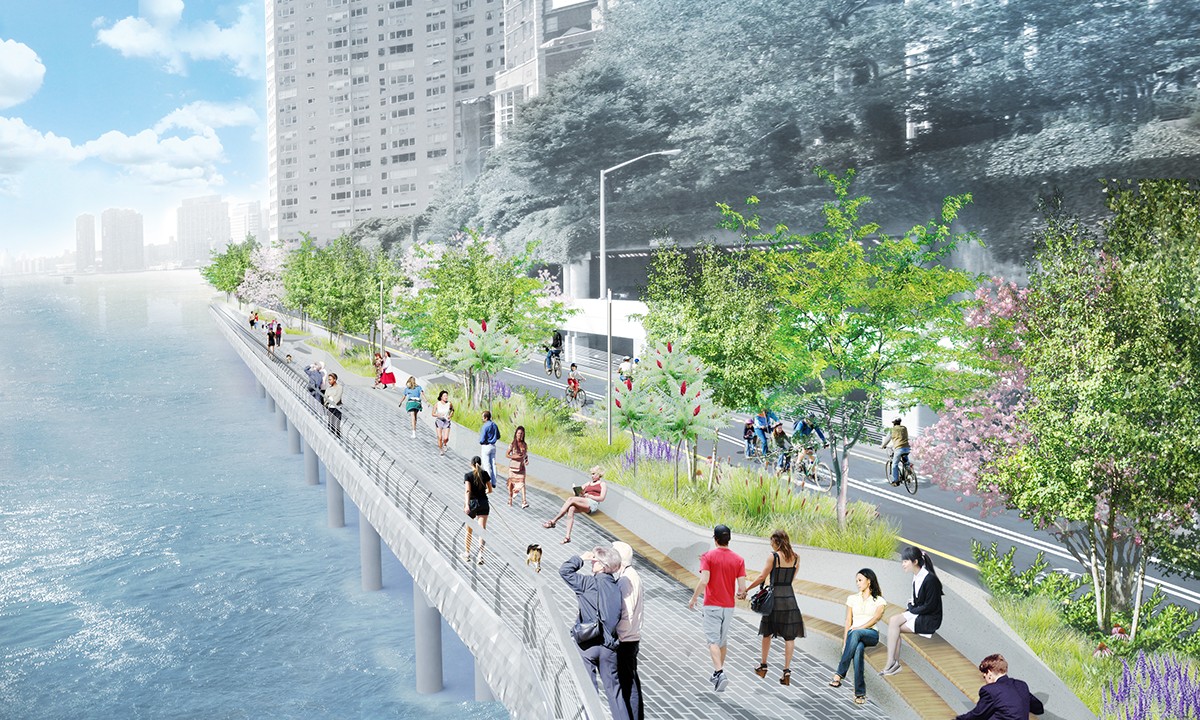The state Supreme Court’s Appellate Division has rejected a lawsuit that sought to stop the erection of a pedestrian and bicycle bridge over a Midtown Manhattan park — a victory for city agencies over the “Not in My Back Yard” crowd.
In upholding a lower court's ruling, the Appellate Division made the important point that such infrastructure is an entirely appropriate use of parkland — which should cheer those who want more public pedestrian and bicycle amenities.
“This pedestrian bridge is intended to provide the public with safe and scenic access to the waterfront along the East River,” said City Law Department spokesman Nicholas Paolucci. “We are pleased the court agreed the city’s approval of this project was lawful and appropriate.”
The Cannon Point Preservation Corporation, a community group, sued the city last year claiming the bridge would illegally seize parkland in a vest-pocket greensward, Clara Coffey Park. The suit contended that the structure required approval from the Legislature and review under New York State Environmental Quality Review Act. A lower court had thrown out the suit on procedural issues.
The bridge — which would span the FDR Drive to connect Sutton Place South at East 54th Street to an as yet unbuilt part of the East River Esplanade — is part of the larger East River Greenway, a mammoth, multi-year project to create waterfront access around Manhattan for residential recreation.
On Thursday, in rejecting an appeal by Cannon Point, the court struck a one-sentence blow against NIMBYism, writing that “even if the site were designated parkland, legislative approval would not be required, since any parkland would not be alienated by the proposed placement of a pedestrian and bicycle bridge terminating in the site at issue.”
In short: A bike bridge is parkland — not the elimination of parkland.
“In holding that this project did not require state legislative approval (as some uses of public parkland do), the court reaffirmed one important principle: Bicycle and pedestrian infrastructure are proper uses of parkland,” said Noah Kazis, a legal fellow at the NYU Furman Center. “The city has the discretion to leave parks as quiet neighborhood oases or to make them accessible to people coming on foot and bike from across the city.”






